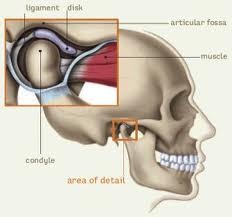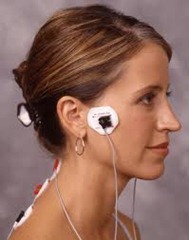 ActiveCare Physical Therapy, PC
ActiveCare Physical Therapy, PC
29 West 38th Street
Suite 601
New York, NY 10018

* We Accept Medicare | No Fault | Workers Comp *
Get Help for Your Temporomandibular Joint Dysfunction
Temporomandibular Joint Dysfunction, TMD or TMJD, often goes by the name Temporomandibular Disorder today. This is a serious disorder affecting the jaw joint. This joint includes the temporal bone that goes from the skull to the ears and connects with the jaw muscles. The jaw is, as you can imagine, one of the most important parts of the human body, and where there is something wrong with this area, having physical therapy treatment to get things back in order is important. Consider for a moment just how essential the jaw is in our everyday lives.
Without proper jaw movement, we would not be able to open our mouths when we had to yawn, or even when we had to speak. It would be impossible to chew and eat. Temporomandibular Disorder can make life miserable rather quickly. This issue is more common in women than it is in men, and it is more common for those who are between 20 and 40 years old.
The Causes of Temporomandibular Disorder
A number of different things can cause this disorder, bruxing among them. This is an excessive grinding of the teeth. Most of the time, this grinding is subconscious and people are not even aware that they are doing it. Teeth grinding as someone sleeps is a real problem. Having an uneven bite can cause the issue as well. Trauma and stress can be a significant contributing factor; the stress one feels can cause the muscles to tighten and that can then lead to teeth grinding.
Any type of inflammation could cause the issue to begin, as could an accident, or even certain types of dental work. Arthritis is yet another cause, even though most people do not immediately associate this with the jaw; the inflammation of the joints from arthritis could indeed affect your jaw.
The Symptoms of Temporomandibular Disorder
A number of symptoms surround this condition, and knowing the symptoms can give you an idea of whether you might have the disorder. Of course, only the specialists will be able to tell you with certainty. Here are some of the symptoms that you will want to watch for.
- Trouble opening the mouth without pain
- Pain in the head and the neck area
- Pain around the ears, face, teeth, jaw, or shoulders
- Clicks and pops in the jaw
- A jaw that locks
- Migraine headaches
- Tinnitus
- Sleep apnea or snoring could occur
Treatment
Depending on the severity of the disorder, different treatments might work. In some of the most severe cases, restructuring of the jaw might be necessary. However, in other cases, some quality physical therapy is all that’s needed. Soft tissue massage to the cranial muscles, joint mobilization, exercise, ultrasound, ice, bite guards, and electronic stimulation are all options that your physical therapy specialist might suggest.
Temporomandibular Disorder is serious and is not something that should go without treatment for long. Talk with medical professionals about finding help. Some of the best physical therapists are the therapists at ActiveCare, and they will be able to help you with this disorder and other issues.
